Developing communities through cross-continent Alumni partnerships
Since the Fellowship’s inception in 2014, Alumni have been joining forces to make a difference and share strategies for amplifying impact in their communities across Sub-Saharan Africa. One way that they can do this is through the Fellowship’s Leveraging Innovations in New Communities (LINC) Grants, which provide support to Alumni to travel to each other’s countries or to collaborate virtually on joint projects or learning opportunities.
Learn more about how several groups of Alumni have collaborated and are making a difference in dozens of communities across the continent.
Promoting agripreneurship through hydroponics in Cameroon
I hope to revolutionize the way that food is produced. It will help the country to solve the problem of food insecurity… We will have sustainable agricultural methods that will increase yields without requiring extensive capital investments for new startups.”
Daliwa Joseph Bainamndi, 2017 Fellowship Alumnus, Cameroon
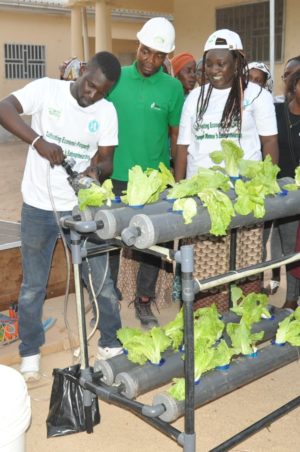
In March 2020, Daliwa Joseph Bainamndi, 2017 Fellowship Alumnus, and Virginie Moussa Minda Epse Danwe, 2018 Fellowship Alumna, collaborated on a series of workshops to teach 350 vulnerable women farmers new hydroponic farming techniques. Having met at a U.S. Embassy Cameroon reception for recently returned Alumni in 2018, Daliwa Joseph and Virginie connected over their shared passion for economic empowerment in rural communities.
During the workshops, women farmers in Maroua, Datchéka, Guidiguis, Minawao, and Moud, Cameroon learned how to build their own hydroponic agriculture systems and leverage basic business and entrepreneurship skills to market the crops grown. After the workshops, women were able to sell their harvests and sustainably maintain their crops, which long-term will help them increase their income and benefit their families and communities.
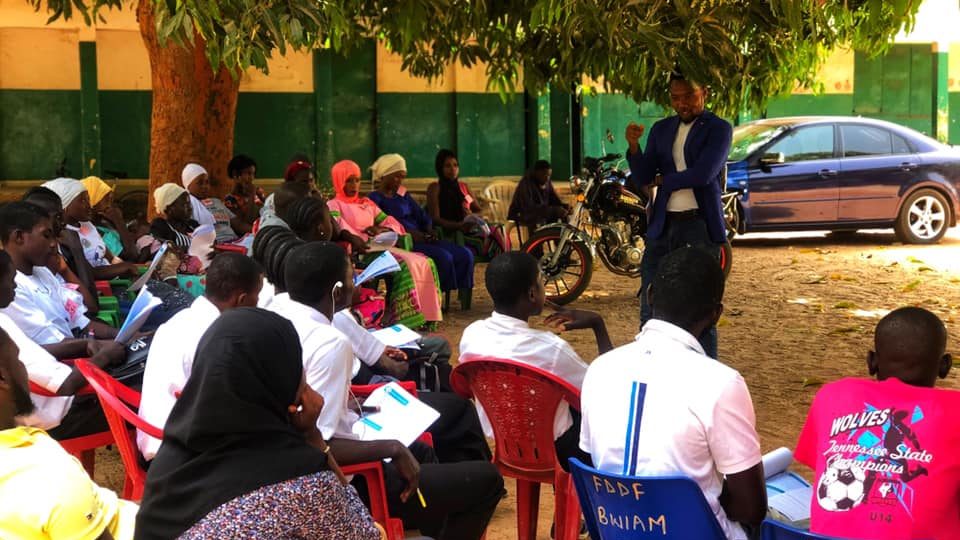
Preventing election violence in The Gambia
[As a result of] the success of the LINC project… Teslima and I are looking to organize a follow-on project which will promote peace and religious tolerance in the communities in The Gambia as well as in Nigeria.”
Chibuzor Agomuoh, 2018 Fellowship Alumnus, Nigeria
In February 2020, 2018 Fellowship Alumnus Chibuzor Agomuoh of Nigeria traveled to The Gambia to collaborate with 2018 Fellowship Alumnus Teslima Jallow. Through their collaboration, Chibuzor and Teslima facilitated practical training for 200 Gambian youth in Kanifing, Brikama, Bwiam, and Kalaji, including school-aged students and law students at the University of The Gambia from conflict-prone regions on peace, conflict resolution, and respectful communication. Their goal was to reduce the number of post-election youth violence incidences in Kanfing, Serrekunda, Brikama, Foni Kanlagie, and Jareng of The Gambia by 20% in 2020 using IREX’s Youth Essential Skills (YES) resources on communication techniques known to contribute to preventing violent extremism in communities.
Chibuzor and Teslima attribute their idea for the LINC Grant collaboration to their collaboration they started during their Leadership in Civic Engagement Institute at Appalachian State University in 2018. Chibuzor and Teslima successfully leveraged their LINC Grant collaboration to be featured on several Gambian radio stations. They hope to continue collaborating to help promote religious tolerance in both Nigeria and The Gambia, as discrimination against minority religious communities is prevalent in both countries.
Sweetening the potato market in Zimbabwe
We started a WhatsApp group with the women we trained, with the aim of creating a strategic plan so we can start sweet potatoes value addition and after that we export the products to Tanzania.”
Haika Mtei, 2019 Fellowship Alumna, Tanzania
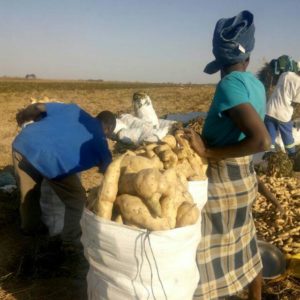
From late February to early March 2020, 2019 Fellowship Alumna from Tanzania Haika Mtei traveled to Marondera and Chiweshe, Zimbabwe to collaborate with 2019 Fellowship Alumnus Joshua (Joe) Nyamowa. During their collaboration, they implemented a 3-day training on innovative sweet potato production and marketing practices for 126 female smallholder farmers. They learned how to utilize tissue-cultured sweet potato vines to improve crop yields and quality and add value through the sale of byproducts like flour, starch, and livestock feeds.
With the knowledge and skills gained in the trainings, these farmers were able to produce crops that would be more marketable at regional and international levels, thus increasing their earning potential. Haika and Joe attribute their connection and idea for this LINC Grant collaboration to their time attending the Leadership in Business Institute at Oklahoma State University in Stillwater, Oklahoma in 2019. They plan to formalize their collaboration by entering into a formal business agreement on sweet potato value addition to increase trade opportunities for smallholder farmers in Zimbabwe and Tanzania.
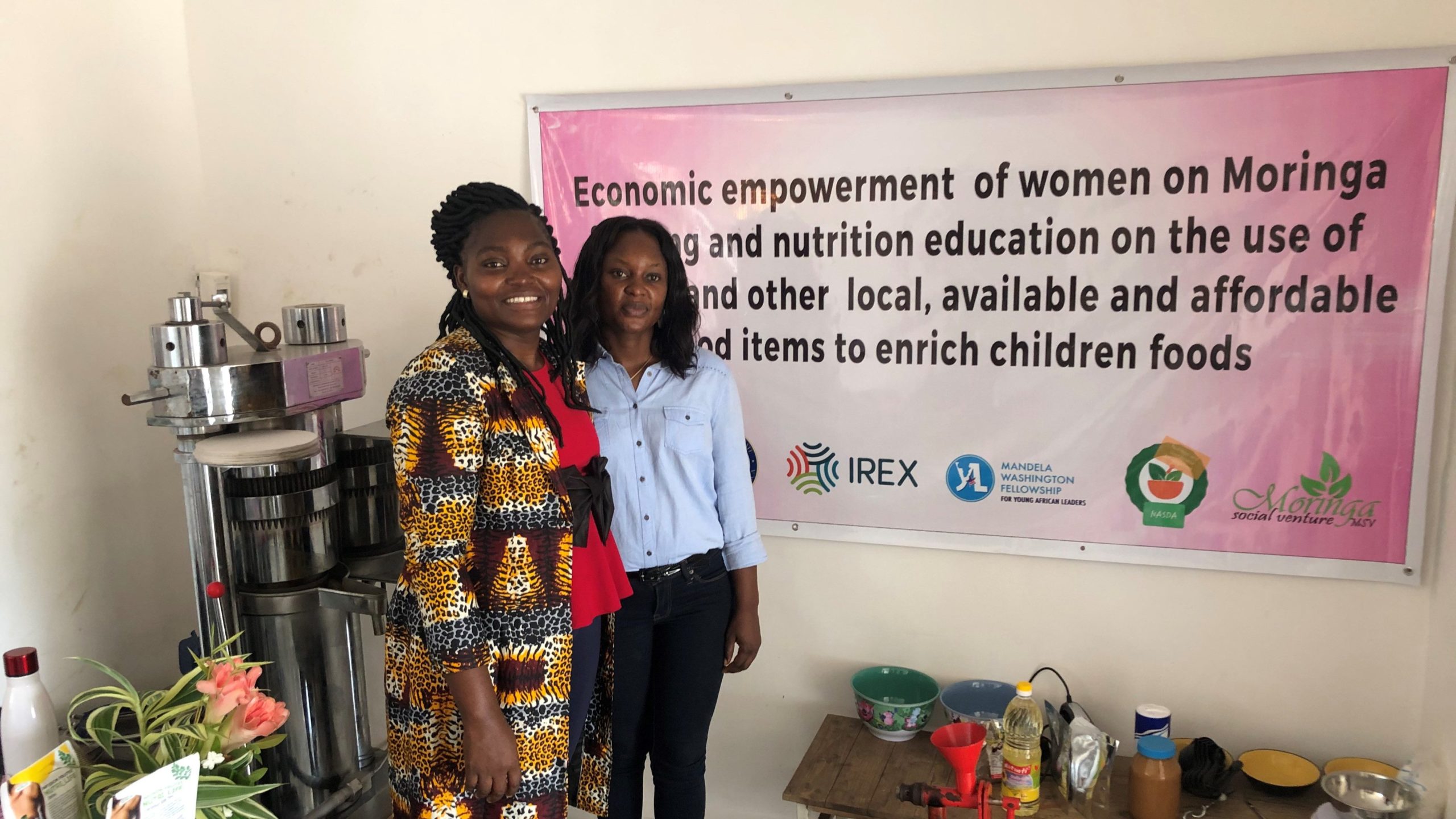
Combating malnutrition through moringa production in Benin
Through the LINC grant we have trained women groups on Moringa value added products. In the coming 6 months … they will have their own Moringa unit production in order to be empowered financially.”
Natacha Agbahoungba, 2016 Fellowship Alumna, Benin
After connecting through their program coordinator at Appalachian State University, Manka’ah Che, 2019 Fellowship Alumna from Cameroon, and Natacha Agbahoungba, 2016 Fellowship Alumna from Benin, bonded over a shared passion for combating malnutrition and poverty alleviation. Their LINC collaboration trained nearly 50 women on the farming techniques for and benefits of the moringa “super-plant”, with the goal of enabling them to tap into a booming agricultural market and combat malnutrition in their communities by producing and selling their own moringa products.
In addition to these trainings, Manka’ah also conducted a quality assurance assessment of Natacha’s moringa processing business and contributed to the development of practical guides on producing moringa-based therapeutic foods, like infant formula and tea. At the culmination of their LINC Grant collaboration, they entered a formal memorandum of understanding on behalf of their organizations to commit to continued partnership and the further development of therapeutic food products. Manka’ah and Natacha estimate that people in both Cameroon and Benin will directly reap the economic and health benefits of their collaboration.
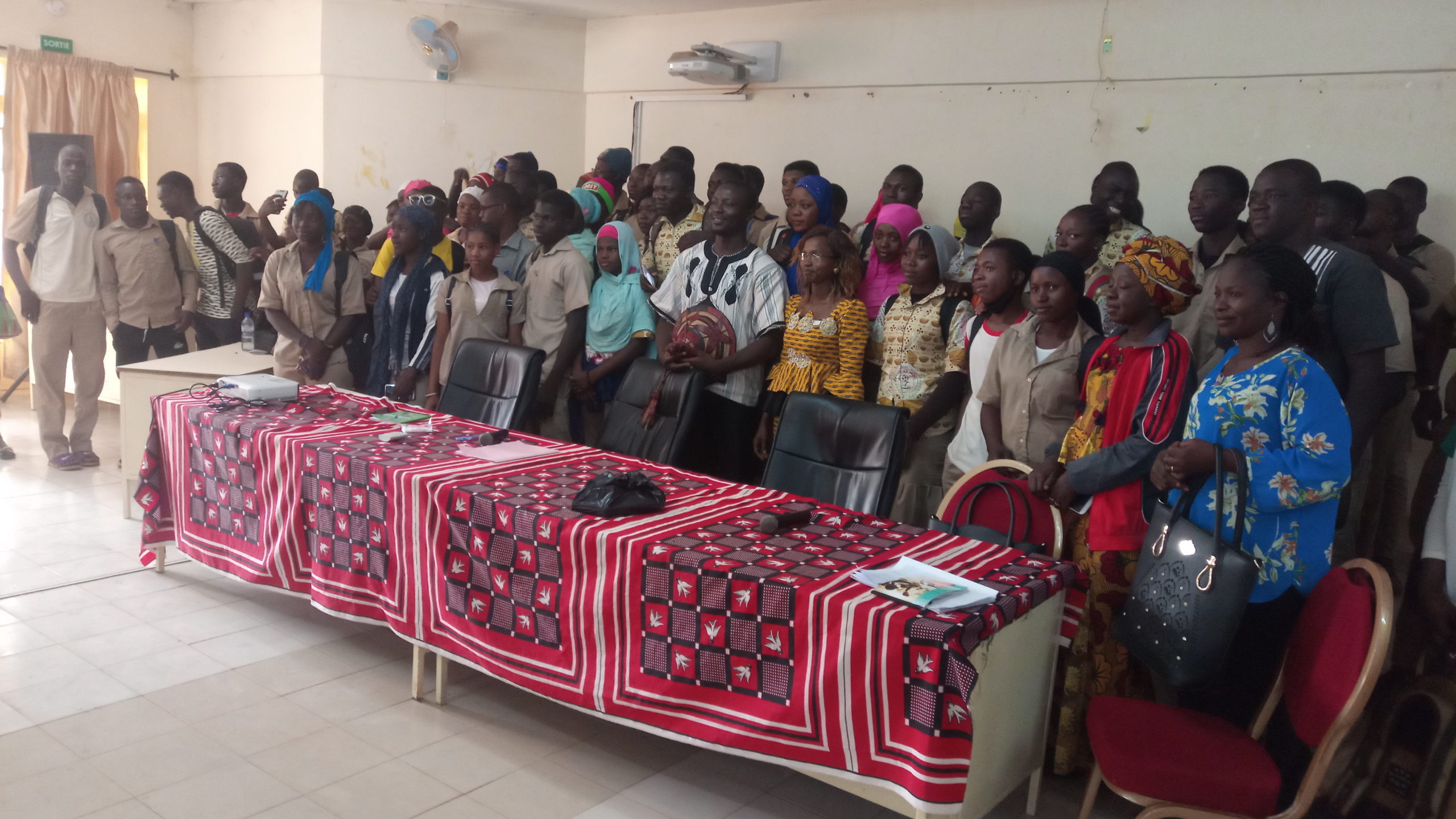
Preventing violent extremism in Burkina Faso
In the coming months, we will be making a plan to support the groups of participants who initiated some projects of development. We will be helping them in implementing their projects at different levels. Additionally, we will be reflecting upon future effective projects in fighting against extremism.”
Mariam Savadogo, 2016 Fellowship Alumna, Burkina Faso
In this February 2020 collaboration between two Fellowship Alumni from Burkina Faso, 2017 Alumnus Frederic Compaore traveled from Ouagadougou, the capital, to the northern town of Ouahigouya to collaborate with 2016 Alumna Mariam Savadogo. Frederic and Mariam initially connected through a U.S. Government Exchange Alumni event and previously collaborated on a youth leadership project.
Frederic and Miriam’s LINC Grant collaboration facilitated practical workshops on bullying, terrorism, and violence prevention to empower at-risk communities in Ouahigouya. These workshops directly equipped 160 community members, including students, parents, schoolteachers, with preventative strategies and best practices to address rising extremism and violence in the region. Following the workshops, Frederic and Mariam distributed manuals on sustainable peace that they co-developed so that the participants, particularly students, can continue leading their peace initiatives in their communities. They also planned to leverage their same-country connection to benefit other communities throughout Burkina Faso by organizing conferences and workshops on leadership, citizenship, and anti-extremism.
Learn more about LINC Grants and other Opportunities for Alumni.
Written by Andree’ Omoregbee and Meredith Lopez.